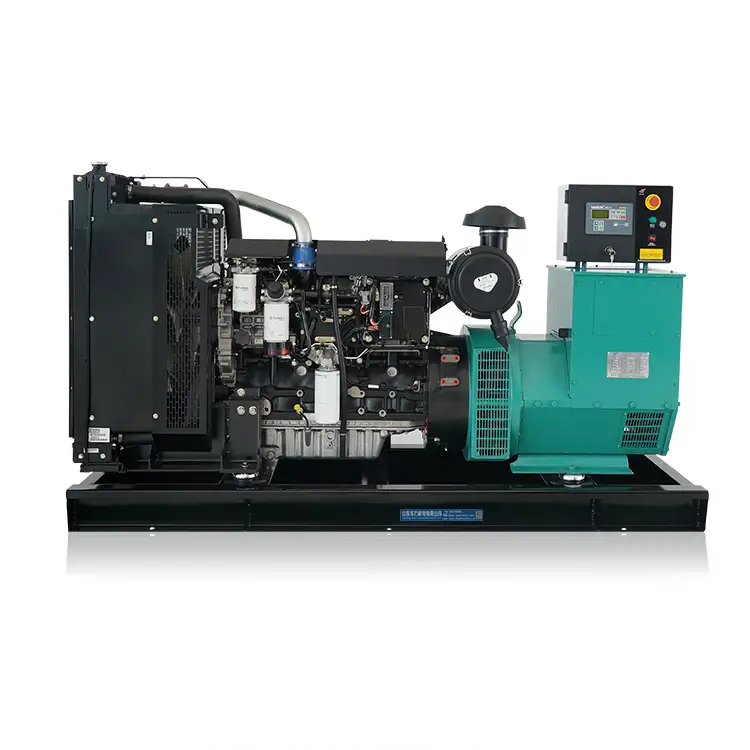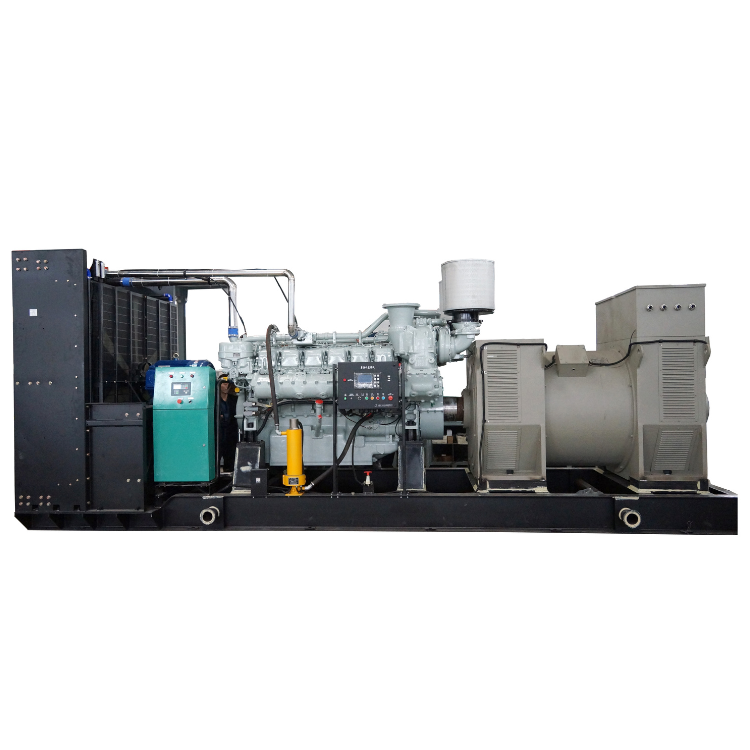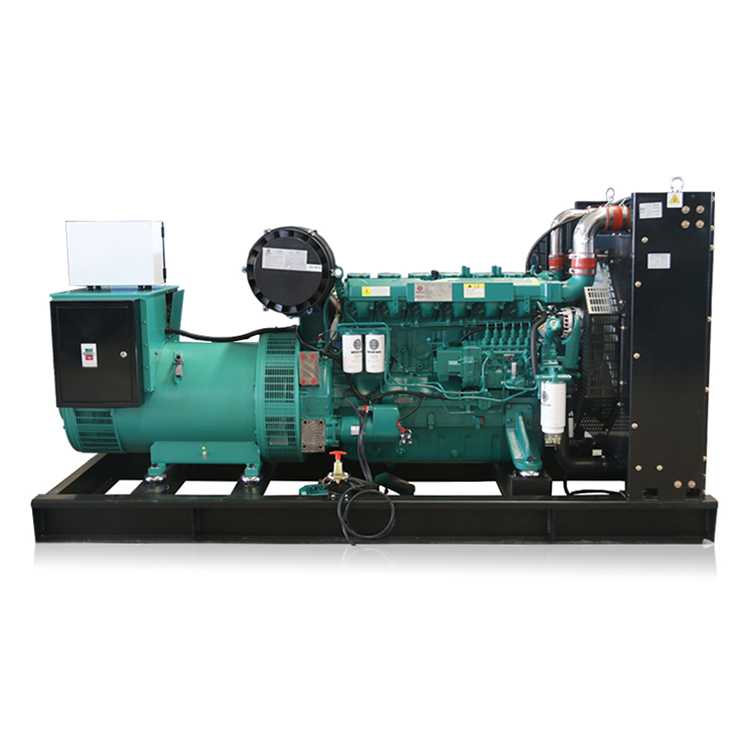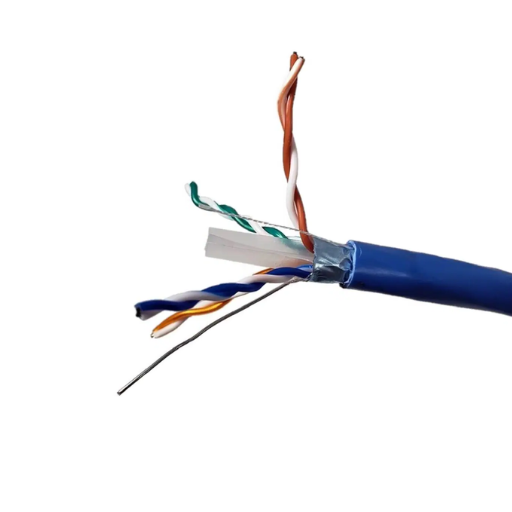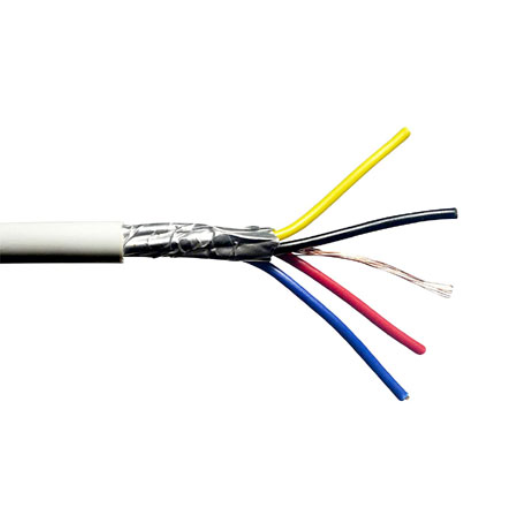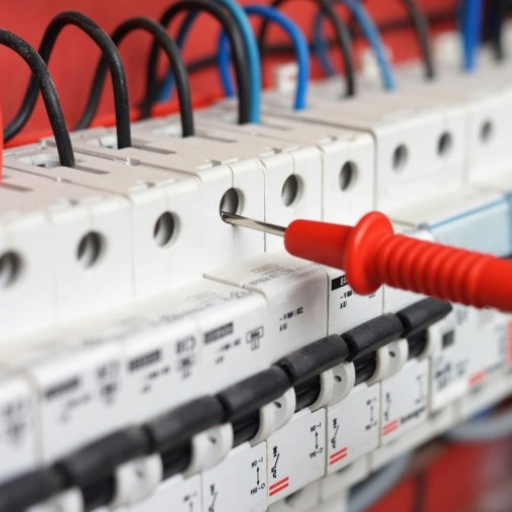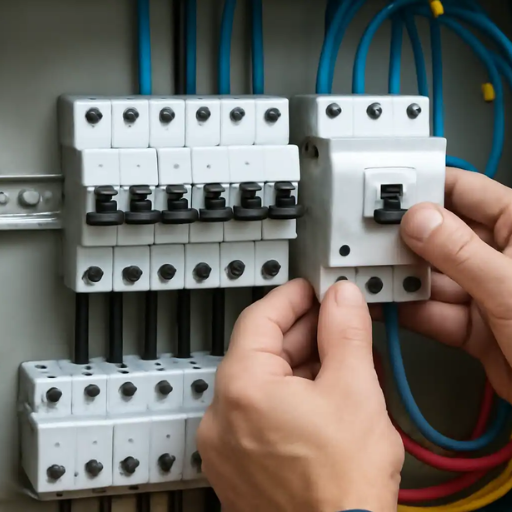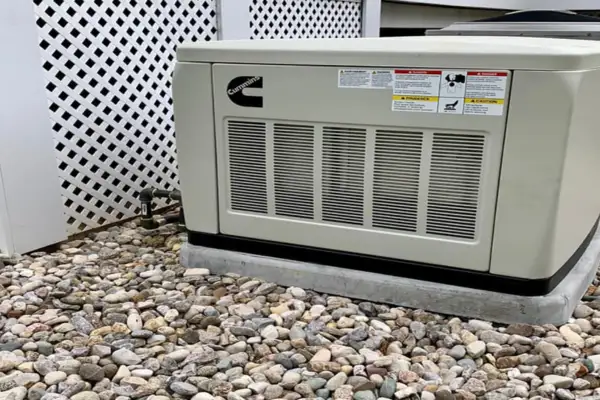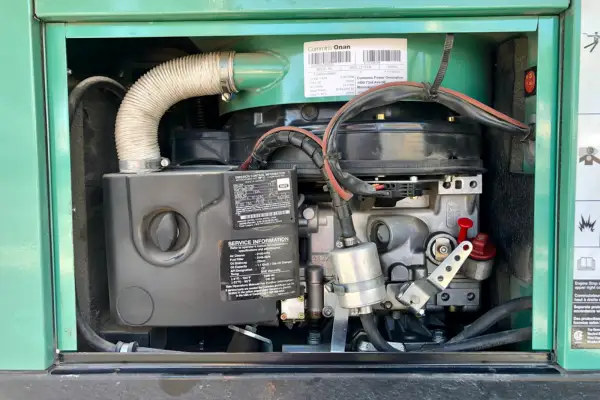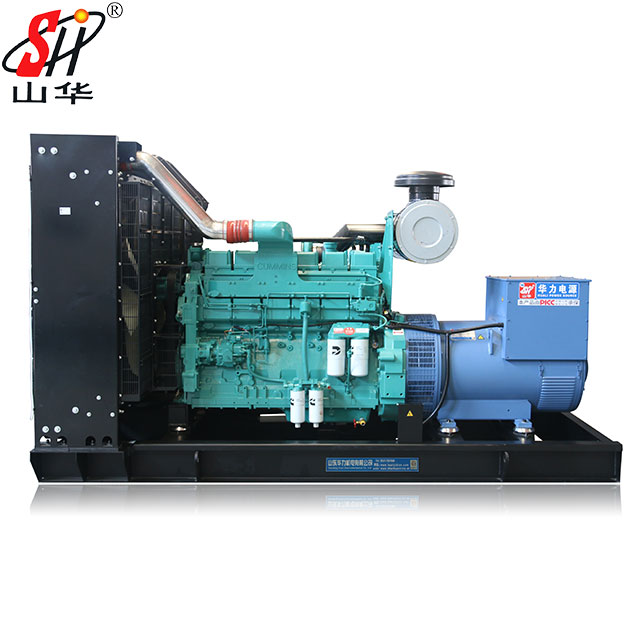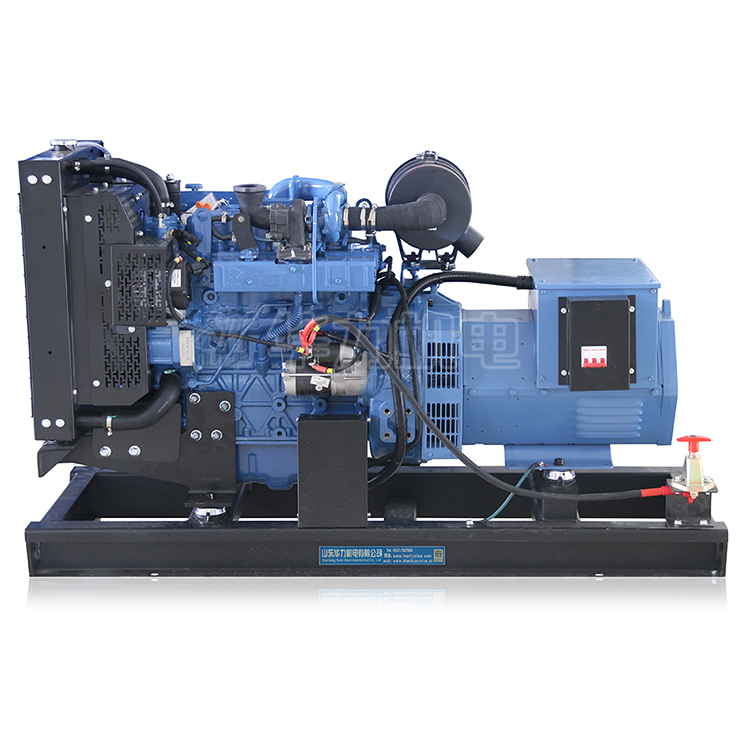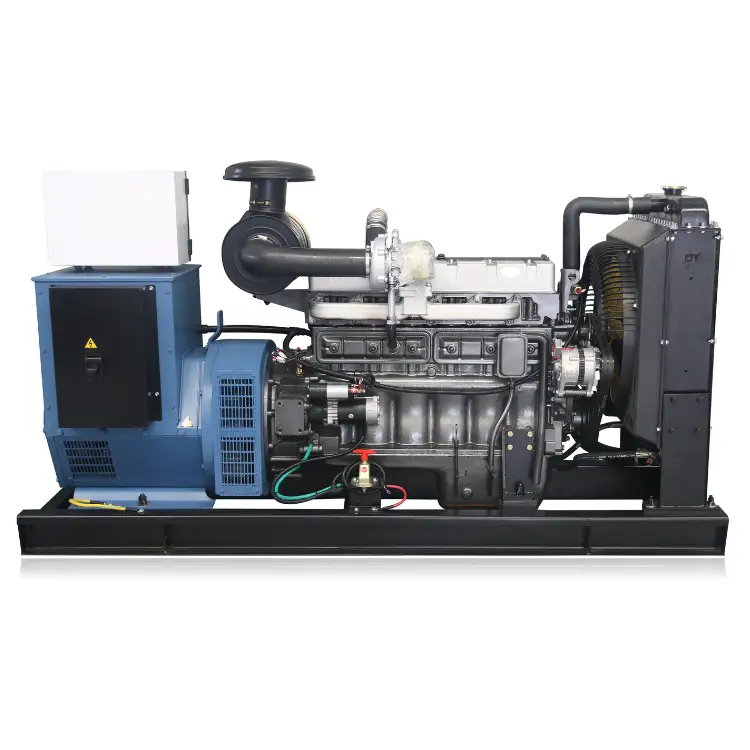Owning a Cummins house generator offers significant benefits for homeowners looking for reliable backup power solutions. These generators are renowned for their robust performance and durability, providing peace of mind during power outages caused by natural disasters or utility problems. The efficiency of a generator not only impacts its operational cost but also its environmental footprint, making it a critical consideration for the energy-conscious consumer.
Cummins house generators are designed to meet diverse energy needs efficiently. By delivering a stable power supply, these generators ensure that homes remain functional and comfortable during outages. Furthermore, the advanced technology incorporated into Cummins generators allows for better fuel efficiency and reduced emissions, aligning with the growing global emphasis on sustainability.
The importance of efficiency in generator use cannot be overstated. Efficient generators consume less fuel, produce fewer emissions, and offer lower operating costs over their lifecycle. For homeowners, this means not just having a power source during emergencies but having one that operates cost-effectively and responsibly. By choosing a Cummins generator, users benefit from the company’s commitment to quality, innovation, and environmental stewardship, ensuring that their investment is not only secure but also smart in the long term.
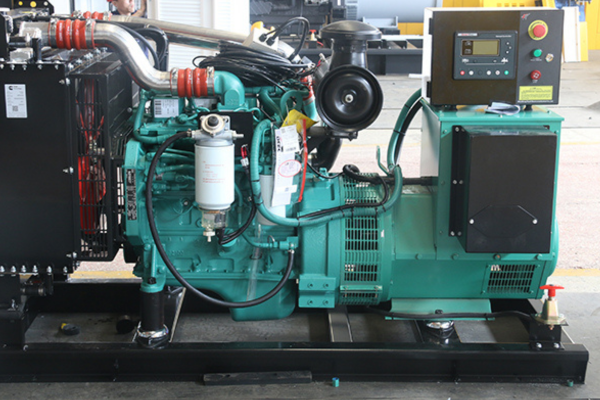
Understanding Your Generator’s Capacity
Properly assessing the power capacity of your Cummins house generator is essential to ensure it meets your household’s energy needs efficiently without underutilization or overload. Understanding the capacity involves knowing how much power the house generator can produce and comparing that to the total power requirements of your home.
How to Assess Power Capacity:
- Calculate Your Home’s Energy Needs: Start by listing all the essential appliances and systems that need to be powered during an outage (like refrigerators, heating systems, and lights) and note their power usage, typically found on the appliance or in the user manual. Sum these values to estimate the total wattage required.
- Check Your Generator’s Specifications: Look at your Cummins generator’s manual to find its maximum output, usually listed in watts or kilowatts. This figure represents the total amount of power the generator can supply continuously.
Importance of Matching Generator Capacity to House Energy Needs:
- Avoid Overloading: If a house generator is too small, it won’t be able to handle all your power needs, which can lead to tripped breakers or generator shutdown. This can be particularly critical during emergencies where consistent power is necessary.
- Prevent Unnecessary Fuel Consumption and Wear: Conversely, a generator that is too large may lead to inefficiencies such as higher fuel consumption and increased wear from running well below its capacity, which can also affect the lifespan of the generator.
To maximize efficiency, the capacity of your Cummins house generator should closely match your home’s peak power usage, plus a margin (usually 10-20%) to accommodate potential increases in demand or future additions to your home. This ensures that the generator runs under optimal conditions, providing reliable power without undue strain on its components.
By carefully assessing and matching the generator’s capacity to your home’s needs, you not only optimize its operation but also enhance its longevity and reduce operating costs, making it a dependable component of your household infrastructure.
Routine Maintenance Schedule
Maintaining your Cummins house generator through a structured routine maintenance schedule is crucial to ensuring its longevity and efficiency. Regular maintenance not only keeps the generator in optimal working condition but also prevents unexpected breakdowns that can occur during crucial times. Here’s how to create a maintenance schedule and what tasks are most critical for peak performance:
Creating a Maintenance Schedule:
- Consult Your Manual: Each Cummins generator comes with a manufacturer’s manual that includes a recommended maintenance schedule. This schedule is based on operational hours or time intervals (e.g., monthly, quarterly, annually) and should be the foundation of your maintenance plan.
- Tailor to Usage: If your generator operates in harsh conditions or is used more frequently, adjust the maintenance frequency accordingly. More frequent checks can prevent issues that arise from strenuous usage.
List of Critical Maintenance Tasks:
- Oil and Filter Change: Regular oil changes are critical for the engine’s health. Check and replace oil and oil filters as per the guidelines, usually after every 100 to 200 hours of operation or annually, whichever comes first.
- Air Filter Replacement: Dust and debris can clog the air filter, reducing engine efficiency. Inspect and replace air filters every 200 hours of use, or more often in dusty environments.
- Battery Inspection: Batteries must be kept fully charged and free of corrosion. Check battery terminals and connections during each maintenance session, and replace batteries every three years.
- Coolant Check: Ensure coolant levels are adequate and check for signs of contamination. Replace coolant as recommended by the manufacturer, typically every two years.
- Fuel System Maintenance: For diesel generators, drain water from the fuel tank and fuel filter to prevent microbial growth and system clogging. For propane generators, ensure all connections are secure and leak-free.
- Test Run: Perform a monthly load test to ensure the generator operates properly under load. This helps identify any operational issues that might not be apparent during idle conditions.
Why Regular Maintenance Matters: Regular maintenance ensures that your house generator will function efficiently when needed and extends its service life. It also prevents the buildup of operational issues that could lead to costly repairs. Maintenance is not just about fixing problems but proactively managing the health of your generator to ensure reliability and performance.
By adhering to a well-structured maintenance routine, you maximize the efficiency and reliability of your Cummins house generator, ensuring that it remains a dependable power source for your home. Regular checks and timely repairs can significantly reduce the risk of unexpected failures, particularly during critical times when you need your generator the most.
Optimizing Fuel Use
Effective fuel management is essential for maximizing the efficiency and performance of your Cummins house generator. Here’s how you can ensure optimal fuel use and understand how different fuel types impact your generator’s performance.
Tips for Efficient Fuel Management and Selection:
- Regular Fuel Quality Checks: Ensure the fuel in your generator is clean and free from contaminants. For diesel generators, use additives if recommended, to improve efficiency and prolong fuel life.
- Proper Fuel Storage: Store fuel in a cool, dry place away from direct sunlight to prevent degradation. For propane generators, check tank connections regularly for leaks and ensure that tanks are refilled before they are completely empty.
- Use Recommended Fuel Type: Always use the fuel type recommended by Cummins for your specific generator model. Using the wrong type of fuel can decrease efficiency and may damage the generator.
How Fuel Type Affects Generator Efficiency and Performance:
- Diesel vs. Propane: Diesel generators are known for their durability and long run time, making them suitable for prolonged power outages. However, diesel fuel requires careful handling and more frequent maintenance due to its tendency to gel in cold weather and its storage life.
- Propane: Propane is cleaner-burning, leading to fewer deposits and less wear on the engine, which enhances efficiency and prolongs the lifespan of the generator. Propane’s high energy content ensures consistent power output and its storage can be indefinite, which is advantageous for less frequent use.
Environmental Considerations:
- Emissions: Propane emits fewer pollutants than diesel, making it a more environmentally friendly option. This is particularly important in areas with strict emission regulations.
- Efficiency in Consumption: Propane generators typically have a higher efficiency rate in converting fuel to energy, which means less fuel is wasted in the form of unburnt residues.
By optimizing fuel use and choosing the appropriate fuel type, you not only enhance the efficiency of your Cummins house generator but also contribute to its reliable performance over time. This proactive approach ensures that your generator is ready to provide power when you need it most, while keeping operational costs and environmental impact to a minimum.
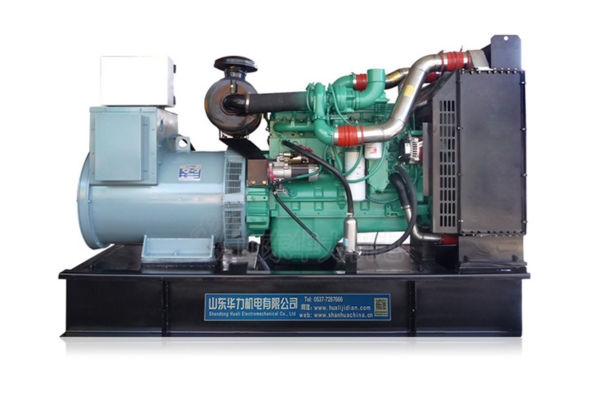
Innovative Installation Techniques
Proper installation is crucial for maximizing the efficiency of your Cummins house generator. Here are some best practices for generator installation and the importance of selecting the right location and setup to optimize output and longevity.
Best Practices for Generator Installation:
- Professional Installation: Always use a certified technician for the installation of your Cummins generator. Certified installers ensure that your generator complies with local codes and regulations, which can vary significantly from one area to another.
- Correct Sizing and Placement: Install your generator where it can easily be accessed for maintenance and is well-ventilated to prevent overheating. Ensure the installation site is free from potential flooding and debris accumulation.
Importance of Location and Setup:
- Noise Reduction: Consider acoustic factors when choosing an installation location. Placing the generator too close to living areas can be disruptive. Use sound-attenuating enclosures if necessary to minimize noise.
- Environmental Protection: Ensure the house generator is protected from environmental elements. An elevated platform can prevent water damage during floods, and a generator cover or housing can protect against dust, debris, and moisture.
- Ventilation: Proper ventilation is critical to prevent overheating and ensure efficient operation. Ensure there’s enough clearance around the exhaust system to safely remove fumes and reduce the risk of fire.
Integrating with Existing Systems:
- Electrical Integration: Work with an electrician to integrate the generator into your home’s electrical system. This includes setting up an automatic transfer switch to seamlessly switch the power source from the utility to the generator during outages.
- Fuel Integration: For propane generators, ensure the fuel supply is consistent and reliable. This might involve installing larger propane tanks or ensuring existing lines are up to specifications and securely connected.
By adhering to these innovative installation techniques, you can greatly enhance the efficiency and safety of your Cummins house generator. Proper installation not only extends the life of the generator but also ensures it operates at peak efficiency, providing reliable power exactly when and where it’s needed most.
Leveraging Technology for Efficiency
To maximize the efficiency of your Cummins house generator, incorporating modern technology and smart devices can significantly enhance its performance and manageability. Here are some ways to integrate advanced technology into your generator system, along with examples of devices that can be used to improve operational efficiency.
Using Modern Technology and Accessories:
- Smart Monitors: Install smart monitoring systems that allow you to track the performance and efficiency of your generator in real-time. These systems can alert you to potential issues before they become serious, allowing for timely maintenance and repairs.
- Automated Transfer Switches (ATS): An ATS can automatically switch your power supply from the grid to the generator during an outage, ensuring seamless power continuity without manual intervention. This not only enhances convenience but also optimizes the generator’s response time and efficiency.
- Remote Management Systems: With remote management technology, you can control and monitor your house generator from anywhere using a smartphone or computer. This includes starting or stopping the generator, monitoring fuel levels, and checking operational status.
Examples of Smart Devices and Systems:
- Cummins PowerCommand®: This system offers comprehensive control over your generator, including remote monitoring capabilities that provide updates on system status and performance metrics.
- Wireless Sensors: Install sensors that provide updates on various parameters such as temperature, pressure, and vibration levels. These sensors can help predict and prevent failures by providing data that can be analyzed for maintenance insights.
- Energy Management Systems: Integrating your house generator with a home energy management system can help optimize the power usage and distribution, ensuring that the generator operates only when necessary, thus conserving fuel and reducing wear.
Benefits of Technology Integration:
- Enhanced Efficiency: Technology can automate many aspects of generator operation, reducing the need for manual checks and adjustments and ensuring the generator operates at peak efficiency.
- Improved Reliability: Advanced diagnostics and real-time monitoring reduce the likelihood of unexpected generator failures by allowing for proactive maintenance and quick response to any issues that arise.
- Cost Savings: Efficient operation and maintenance not only extend the lifespan of your generator but also save on fuel costs and prevent expensive repairs.
Integrating these technologies into your Cummins house generator setup ensures that you not only meet your current energy needs but also adapt to future advancements in generator technology and management systems. By leveraging modern technology, you can enhance the efficiency, reliability, and overall performance of your generator, making it a smart, long-term investment for your home.
Conclusion
Choosing a Cummins house generator involves a thorough understanding of its benefits, efficient operation, and proper maintenance. This article has explored various aspects to ensure you make the most out of your generator, from selecting the right model to integrating advanced technologies for enhanced performance.
Recap of Key Points:
- Efficiency and Preparedness: We discussed the importance of matching your generator’s capacity to your household’s needs, regular maintenance, and preparing for emergencies to ensure reliability when it matters most.
- Technological Integration: Leveraging modern technology not only enhances the operational efficiency of your generator but also simplifies monitoring and maintenance tasks.
- Environmental and Cost Benefits: Opting for a Cummins propane generator offers significant environmental benefits and operational cost savings, making it a sustainable choice for power generation.
Final Thoughts: Investing in a Cummins house generator is a decision that offers reliability, efficiency, and peace of mind. By following the best practices outlined in this guide, you can enjoy sustainable and efficient power, ensuring that your home remains powered during outages and your generator operates at peak efficiency for years to come. This proactive approach not only secures your immediate energy needs but also aligns with broader environmental goals, making it a wise choice for energy-conscious homeowners.
By ensuring proper installation, regular maintenance, and readiness for emergencies, you can maximize the lifespan and efficiency of your Cummins generator, making it an invaluable part of your home’s infrastructure.
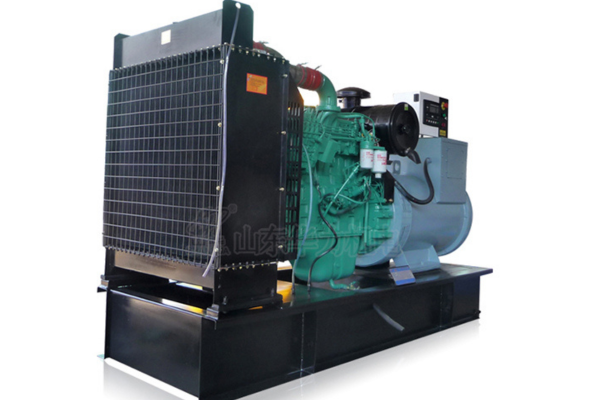
FAQs: Common Questions About Cummins House Generators
When it comes to selecting and maintaining a Cummins house generator, potential buyers and owners often have specific questions. Here are some of the most frequently asked questions, providing clear and concise answers to help guide your decisions and ensure you get the most out of your investment.
- What size Cummins generator do I need for my home?
- The size of the generator you need depends on the total wattage of the appliances and systems you want to power. Calculate the combined wattage of essential items you need during a power outage and select a generator that meets or exceeds that requirement.
- How often should I perform maintenance on my Cummins generator?
- Cummins recommends conducting routine maintenance at least annually or after every 100 hours of operation, whichever comes first. This includes checking the oil level, replacing the air filter, and ensuring the battery is charged.
- Can I install a Cummins house generator myself?
- It is strongly advised to have your Cummins generator installed by a certified professional to ensure it meets all local codes and works correctly. Improper installation can lead to performance issues or safety hazards.
- What is the lifespan of a Cummins house generator?
- With proper maintenance, a Cummins house generator can last well over 20 years. The key to longevity is adhering to the recommended maintenance schedule and using genuine Cummins parts for repairs.
- Are Cummins generators worth the investment?
- Yes, Cummins generators are known for their reliability, durability, and efficiency. They are an excellent investment for ensuring continuous power supply during outages, particularly in areas prone to severe weather.
- Where can I buy a Cummins house generator?
- Cummins house generators can be purchased through Shandong Huali Electromechanical Co., Ltd. You can find a local dealer on Cummins’ official website or by contacting their customer service for assistance.
References
Buying and Installation: Cummins offers a range of home generators suitable for various needs, from portable to whole house systems. They emphasize the importance of professional installation by authorized dealers to ensure safety and compliance with local codes.
Choosing the Right Size: It’s crucial to select a generator that matches your home’s power requirements. Cummins provides a generator size calculator on their website, which helps you determine the right size based on your home’s square footage and essential power needs.
Maintenance and Support: Regular maintenance is advised to keep the generator in optimal condition, with specific schedules available in the operator’s manual.
Warranty and Customer Support: Cummins generators come with different warranty options depending on the model, which can greatly benefit the user in terms of reliability and service support over the years.


